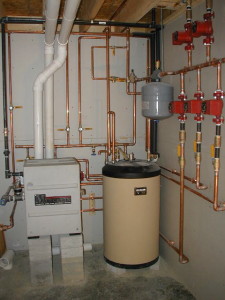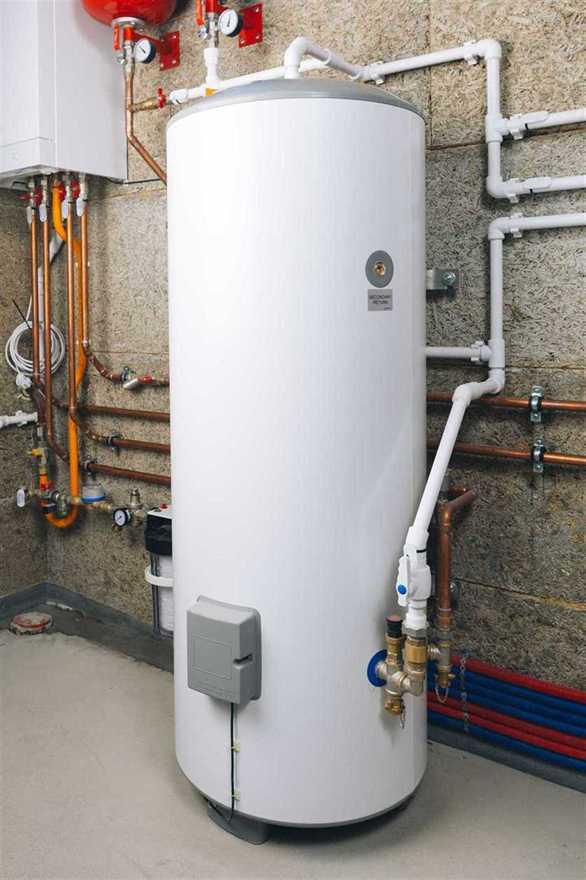The article following next pertaining to Broken Water Heaters is relatively interesting. Read on and make your own findings.

Whether it is located in the cellar or a different area, busted water heating systems can create stress and anxiety. Having no hot water supply is also troublesome.
Call the Plumber
After doing the very first two safety and security actions, you need to call your plumber to come as soon as possible to deal with a ruptured water heater. Remember that your unit will not simply conk out dramatically overnight. There are normally signs that your aging water heater has debris buildup in the interior. Bear in mind of the following:
Do not wait for major flooding to call the plumber. By then, you will have to spend even more to restore your residential or commercial property. Instead, as quickly as you spot these signs, have an expert pertained to check your hot water heater storage tank. Typically, water heaters have a lifespan of concerning 8 to 12 years. With normal evaluation and also maintenance, you can extend its life.
Cut Off the Cold Water Supply
Cut off the tanks tap water supply from the resource. When your container is in great condition, the cool water quits filling up when the tank is complete. If you can not find it or reach it, you need to turn off that primary water supply line outside your residential or commercial property.
Shut Down Source Of Power
Before calling the plumber, turned off a gas hot water heater by turning the temperature dial. This is normally located at the top of the thermostat. If you have a design that works on electric power, switch off the breaker. This will certainly prevent electrocution, particularly if there is a leakage as water is a conductor. Typically, the burner shuts off when the water strikes a specific temperature level. Yet with a busted tank, it might malfunction. Cutting it off assures you stay safe.
Clean Up Home
After calling the plumber, document damage by taking notes as well as images so you can assert your property owner's insurance coverage. From there, begin the instant clean-up. Obtain any crucial belongings to prevent more saturating. Get rid of any kind of standing water to avoid mold as well as mold development. If you have a submersible water pump, use that to drain pipes the water. Or else, the standard pail approach will certainly additionally work. Try to wipe out every little thing, consisting of walls as well as walls. Maintain them running to keep air circulating if you have an electrical fan and also dehumidifier. This will certainly help hinder mold and mildew growth.
Remember, if you discover any type of problems with your hot water heater, call the pros as soon as possible. You can not take this problem gently due to the fact that a faulty thermostat can elevate water temp to an alarmingly high level, bring about unexpected burns. A damaged heating unit stress relief valve can additionally trigger a surge. For finest outcomes, get an annual check so your device gets inspected, cleansed, drained, and also replenished, ensuring optimal performance.
After doing the initial two safety actions, you should call your plumber to come right away to repair a fractured water heating system. Instead, as quickly as you detect these indications, have an expert come to check your water heater storage tank. Prior to calling the plumber, shut off a gas water heating unit by transforming the temperature level dial. If you have a completely submersible water pump, use that to drain the water. Keep in mind, if you see any kind of issues with your water heater, call the pros right away.
Is My Water Heater Broken?
The Water Heater is Old
No appliance will last forever. This includes a home’s water heater. During its lifespan, residents are going to face a situation where a new water heater installation will be necessary. The biggest problem with this is that most people are not sure when their water heater expires. Not knowing this can lead to serious risks if the unit begins to act up due to old age.
Most makes and models of water heaters will last between eight and 10 years. While 10 years is the age when water heater replacement is highly recommended, the need to replace the unit may occur before this time or after. If the unit doesn’t show any symptoms of a problem, it is a good idea to replace it at the 10-year mark (from the manufacture date).
Some of the symptoms that indicate a new unit is needed include rusting, leaks, noises, and a failure to heat up the water. Also, note that not all units have a 10-year life expectancy. The main exception to this rule is that a gas unit will last for six to eight years.
Rusty Heater Inlet Valve or Water
While steel is the strongest material on earth, it does have a weakness – rust. If corrosion occurs on a steel surface, it will begin to spread and eat through the steel in certain areas. On water tanks and pipes that are made of steel, rust is a warning sign of an impending leak.
The issue for many is trying to figure out if the rust is coming from the water heater or the pipes that lead to the faucet. If rust is seen, it is a clear indication that water heater service from the professionals is needed.
If rusty water appears out of the faucets in the bathtub or sink, it likely means a rusty water heater. If there is rust near the water inlet or the pressure relief valve, rust has likely developed inside the tank. If tap water appears rusty, it may be an issue with the pipes.
Strange Sounds from the Water Heater
Are there strange sounds coming from the tank? As a water heater gets older, rumbling noises may develop and get louder and louder as the water in the tank heats up. In homes where large amounts of hot water are used, the issue is likely going to be even more obvious when more serious issues arise. If there is a strange or loud noise coming from the unit, it is probably because of sediment buildup. A good way to remedy this problem is by flushing the heater. If this does not work, then a new unit may need to be installed.
Leaks
As a water heater gets closer to the end of its useful life, there is a higher chance there will be water around the tank. If there is water, this usually means leaks are occurring. Based on where the unit is located in the home, a leak may result in serious property damage.
Leaks are usually caused by expansions in the metal tank. The expansions occur as time passes and as the inside body of the tank is exposed to multiple heating cycles per day. When a fracture forms, the gap will be slight enough to hold the water in; however, in more serious situations, this will not be the case. If the tank is idle, the water will not leak but when the metal expands during each heating system, small amounts of water will get through the gap.

I was guided to that editorial on What Do You Do When Your Water Heater Bursts? from someone on a different site. Sharing is nice. You never know, you may just be doing someone a favor. Thank you so much for your time spent reading it.
No more leaks!